

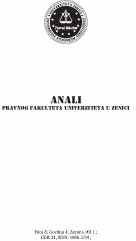
Keywords: real property contract; form; convalidation; public notary
Searching for the answer to a question of the form of a contract inevitably raises the question of the existance i.e. validity of the contract. In the legislation of the Republic of Srpska, in the field of transfer of real property, there are the Transfer of Real Property Act and the Notaries’ Act. The question of authority is resolved with the help of a temporal criterium - depending on the moment of drawing such a contract. Thus, the Real Property Act is applied on the contracts entered into until 11 March 2008, and for all contracts drawn afterwards, the Notaries’ Act is a competent source of law. According to the Real Property Act, enforcement of a contract in full or in part, i.e. signatures of authorised witnesses cover the shortages of a required form thus enabling convalidation, and the Notaries’ Act determines that additional validation of a real property contract entered into after 11 March 2008 is absolutely excluded. The only legal consequence for disrespect of a notary form is invalidity, without the possibility of convalidation. Such specific legal treatment of the real estate property form, in the law of the Republic of Srpska, is justified with the fact that the subject of this contract is, as a rule, the trade in things of higher value, and the fact that the imperative of a social community is, in the matter of trade in legitimate assets and in the preventive phase, to protect public interest. These are the grounds for ratio legis of the notary form of the real property contract, whose primary purpose is to regulate legal relations in such way as to avoid disputes and guarantee legal certainty for both, contracting parties and third parties.
More...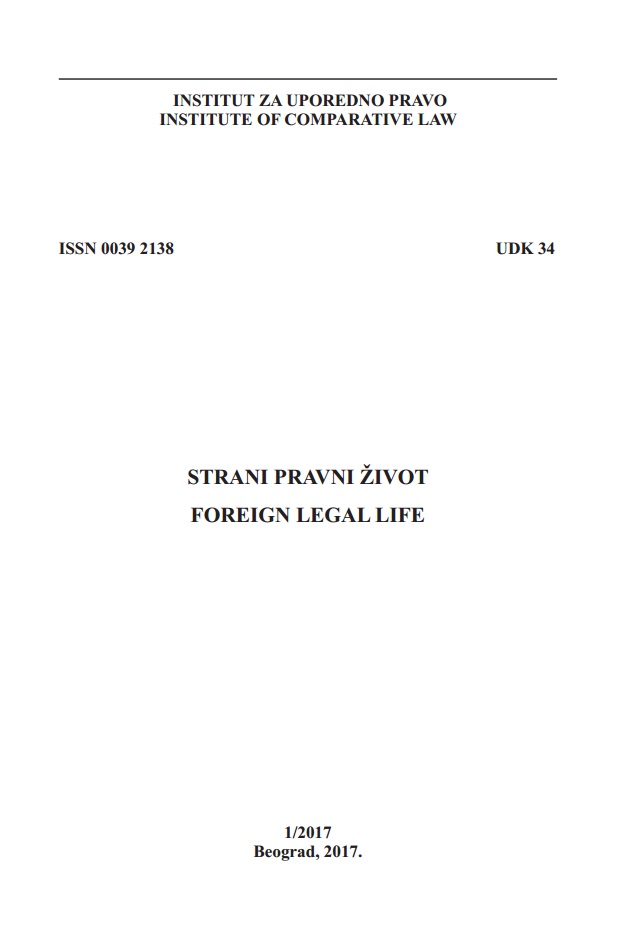
Keywords: contract; European Union; football; professional football players; settlement of disputes
In this paper author has analysed provisions of the Agreement regarding the minimum requirements for standard player contracts in the professional football sector in the European Union and the rest of the UEFA territory, and explained importance of social dialogue under auspices of the EU as institutional mechanism for concluding the Agreement. Special attention has been given to the issue of legal system of arbitration proceeding for settling disputes between clubs and players, and also to peculiarities of solutions foreseen by the article 12 of the Agreement. Moment of concluding the Agreement and its provision were brought in correlation with historic changes of treatment of sport and athletes in EU and practice of the Court of Justice of the European Union in the case of legal dispute between Union Royale Belge des Societes de Football Association and Others versus Jean-Marc Bosman. In the closing part of the paper, a position has been taken that realisation of the Agreement regarding the minimum requirements for standard player contracts in the professional football sector in the European Union and the rest of the UEFA territory represents an important accomplishment within scope of protection of employment rights of football players as workers in a specific part of the sport industry. Furthermore, it has been emphasised that rulings of the Court of Justice of the European Union in the cases of Dona, Bosman, Deliege and Lethonen, and subsequent signing of the Agreement, must be viewed as building up strength of regulatory function of the EU and its member states at the EU sport market.
More...Keywords: Franchising contract; Master franchising agreement; Know-How; Trade Secret; Undisclosed Information;
Franchising business concept, realized in practice by franchising contracts, has the elements of many legal institutes. Among the most important, crucial for its realization, are the institutes of intellectual property rights. In the corpus of intellectual property rights, generally used in franchising, the most important ones are kinds of undisclosed informations; at first, the institute of know-how, and, the other rights very similar to it. These institutes are trade secrets (generally considered as a special part of know-how). This article is dealing with use of know-how and the trade secrets in franchising contracts, at first in the master franchising contracts (because the master franchising contract is the most interesting and the most complicated of all franchising agreements), but into the franchising contract in general, also. Besides the use of know-how and trade secrets, as the most important institutes of intellectual property rights for franchising method of business, author is analyzing the question of the protection of those institutes in franchising contracts.
More...Keywords: Risk increase; Premium increase; Notice; Cancelation; Termination; Contract; Indemnity;
Author analyzes increase of the risk being object of insurance and the way this affects rights and obligations of the contractual parties from insurance contract. For such specified goal, author decided to compare legal solutions of the few EU member states against Serbian legislation. Hence, author analyzes duty of the policyholder to advise insurer about risk increase, policyholder right to premium reduction and right to cancel insurance contract due to premium increase. Particular attention was given to the insurer right to demand higher premium, right to full premium amount, right to terminate insurance contract and right to be released from liability. Results of his research show desirable direction of the Serbian insurance law reform in the Draft Civil Code of Republic of Serbia.
More...Keywords: European Union; Lisbon Treaty; ratification; reform; referendum; entering into force; Charter of fundamental rights;
The paper deals with the procedures of ratification of the Lisbon Treaty and the European Union reform provided by this Treaty. The reform Treaty was signed at the European Council conference in Lisbon on 13th of December 2007 with a view to enhancing the efficiency and democratic legitimacy of the Union and to improving the coherence of its action. The treaty has not yet been ratified by all EU member states, as required for it to take effect. After introductory notes with regard to the importance of the EU institutional reform, the author analyses the problems related to the ratification of the Lisbon Treaty. The special attention is paid to the procedures of ratification in the Republic of Ireland and the Czech Republic. After the initial rejection of the Treaty in 2008 by the Irish electorate, a decision was reversed in a second referendum in October 2009. But in the meantime the situation in the Czech Republic became very complicated. On the one hand, the group of senators submitted a complaint to the country’s Constitutional Court calling on it to determinate whether the Lisbon Treaty violates the country’s constitution. The Czech president said that he would not signe the Treaty until the court makes its judgment. The Czech Constitutional Court is expected to deliberate on the matter on October 27. But on the other hand, the Czech president stated that he wanted a Czech opt-out clause for the European Charter of Fundamental Rights before he would provide his signature. The second part of the article is dedicated to the prominent changes provided by the Lisbon Treaty such as: creation of a President of the European Council with a term of two and half years and a High Representative for Foreign Affairs to present a united position on EU policies, increased involvement of the European Parliament in the legislative process through extended codecision with the Council of Ministers, elimination the pillar system, reduction of the number of commissioners, incorporation of The Charter of Fundamental Rights to the Lisbon Treaty. . Within the concluding observations, the author sums up presented observations and especially emphasizes the importance of the entering into force of the Lisbon Treaty by the end of 2009.
More...Keywords: The Court of Justice of the European Communities; General Court; Specialized Courts; Lisbon Treaty; jurisdiction; election of the judges; procedures;
In this paper the author presents the principal innovations in European Union Jurisdictional system envisaged by the Lisbon Treaty. The modifications related to the organization concerning the change of the name of courts, the procedure of election of judges and advocates general and the establishment of the specialized courts. The other modifications refer to the procedures in front of the European Court of Justice and The Court of the First Instance such as: actions for annulment, actions for failure or fulfill obligations and references for preliminary rulings.
More...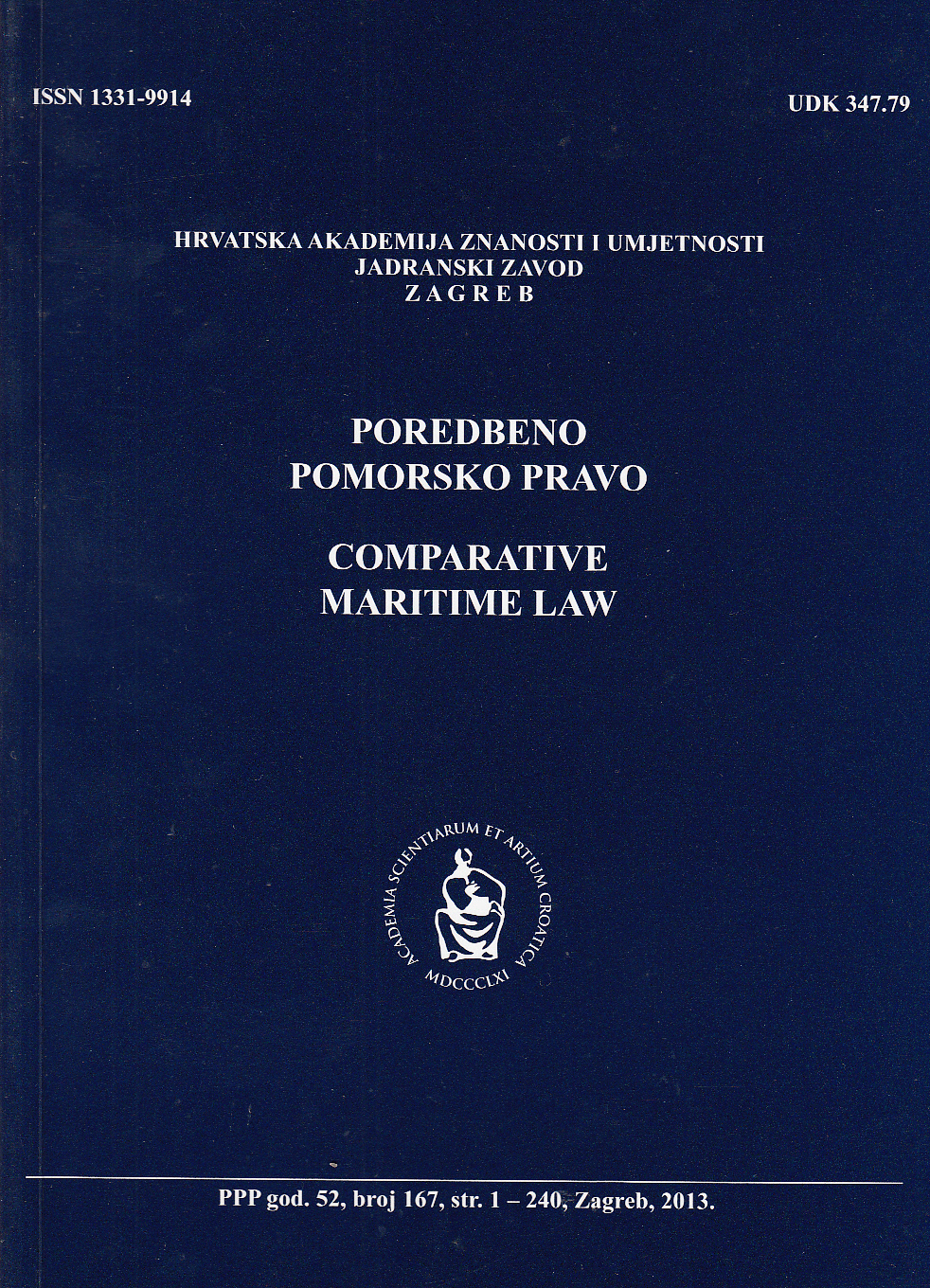
Keywords: marina operator’s liability; berthing contract; liability insurance; marine insurance; direct action;
The author examines the implications of the berthing contract and marina operator’s liability arising therefrom, in particular its liability for damage to and loss of pleasure craft berthed in the marina. The paper discusses the legal nature and the contents of the berthing contract, the scope and limits of marina operator’s liability, as well as of the marina operator’s insurer. In particular, the right of direct action of the user of berth against the marina operator’s liability insurer is analyzed. The author refers to the relevant domestic court practice and presents certain solutions in comparative Italian legal doctrine and practice.
More...![Compensation under the collective agreement due to the loss of maritime career : [case review]](/api/image/getissuecoverimage?id=picture_2011_44581.jpg)
Keywords: case review;collective agreement;maritime career - loss;seaman;damage due;compensation;
Under the collective agreement, in case of the loss of maritime career, a seaman is entitled to compensation. If actual damage due to the loss of maritime career is greater, the court shall award higher compensation compared to that prescribed by the collective agreement.
More...![Duration of time charter : [case review]](/api/image/getissuecoverimage?id=picture_2006_45792.jpg)
Keywords: case review; time-charter - duration; charter period;
The expression ''the charter period'' refers to basic period of the contract, but it also includes off-hire period for which the charterers chose to make use of as an extension of charter and period of tolerance which is often contained in time-charters standard forms. The parties can agree the additional extension of the time-charter period (at the same rate and conditions) during round voyage on which the vessel is engaged at the expiry of the period of the charter. The expression ''the charter period'' is not a term of art but one which was liable to take its color from its context; the expression used in Article 18 was ''at the expiry of the period of this charter'' and occurred in quite different context from that which was under consideration in The Aspa Maria. Accordingly, the tribunal in this case wasn't bound by decision in The Aspa Maria.
More...![Form and essential components of charter by demise : [case review]](/api/image/getissuecoverimage?id=picture_2005_45820.jpg)
Keywords: case review; charter by demise - contract;
For a charter by demise to be valid, it shall be drown up in writing. Monetary compensation, i.e. payment of hire, must be the contents of a written charter by demise as payment of hire is an essential component of a charter by demise. So the written form of the contract must contain all important components of that agreement. An oral agreement in respect of the payment of hire amount could be valid only if the parties would be defaulting a service contract relating to the charter fee over a longer period of time.
More...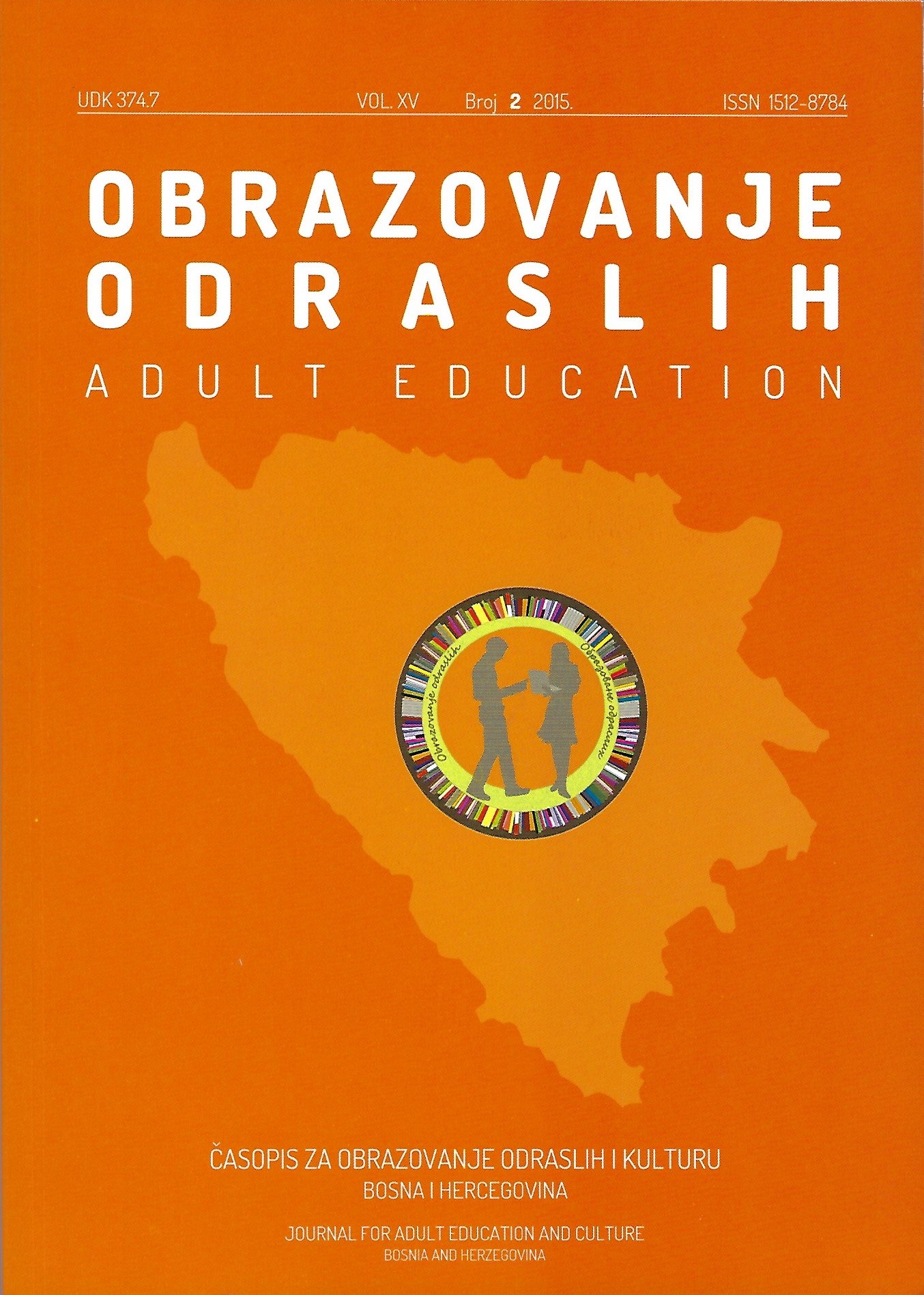
Keywords: normative psychological contract; student-assistent; relationship; expectation of the roles;
Upon entering in each relatively unknown and new context , such as new course, students enter with certain expectations which they may not always be fully aware of. Like the students, the teachers and assistants also generate certain expectations, mostly based on psychological aggregation of past experience. The fact is the especially the implicit expectation of both will somehow shape their behaviour and attitudes about this course. The expectations from both parties usually represent a range of very specific, mostly implicit, expectations that from the basis of the psychological contract. This contract is often defined as a ''tacit'' agreement between the parties (students and teachers/assistants) on the nature of their exchanges and the way they realize their relationship in the process of teaching. This paper attempts to examine the content of the normative psychological contract that defines the common expectations of students and assistents related to the rights and obligations that implice the role of the student , as wells as the rights and obligations that implice the role of assistants in relation to the student - assistent relationship in one of the teaching courses. The study was conducted on a sample of N = 38 students in the fifth academic year od the Department of Psychology at the Faculty of Philosophy of the University of Sarajevo. The modified nominal group technique was used to collect individual data and achieve a group consensus on the content of the normative psychological contract. In particular, the attention was drawn to the efficient way of collection and using information about students' expectations, which can be considered whwn defining and clarifying mutual expectation on the role of students and teachers/assistants in the educational process. An effort was made to point out on the example of concrete steps the acceptability and applicability of the method in defining the normative psychological contract of any educational group. Finally, the study resulted in a proposal of a Scale for the evaluation of the fulfilment of psychological contract. This scale would be useful to the adult educators in creating of individualized Scale for the evaluation of the fulfilment of psychological contract in a specific educational context.
More...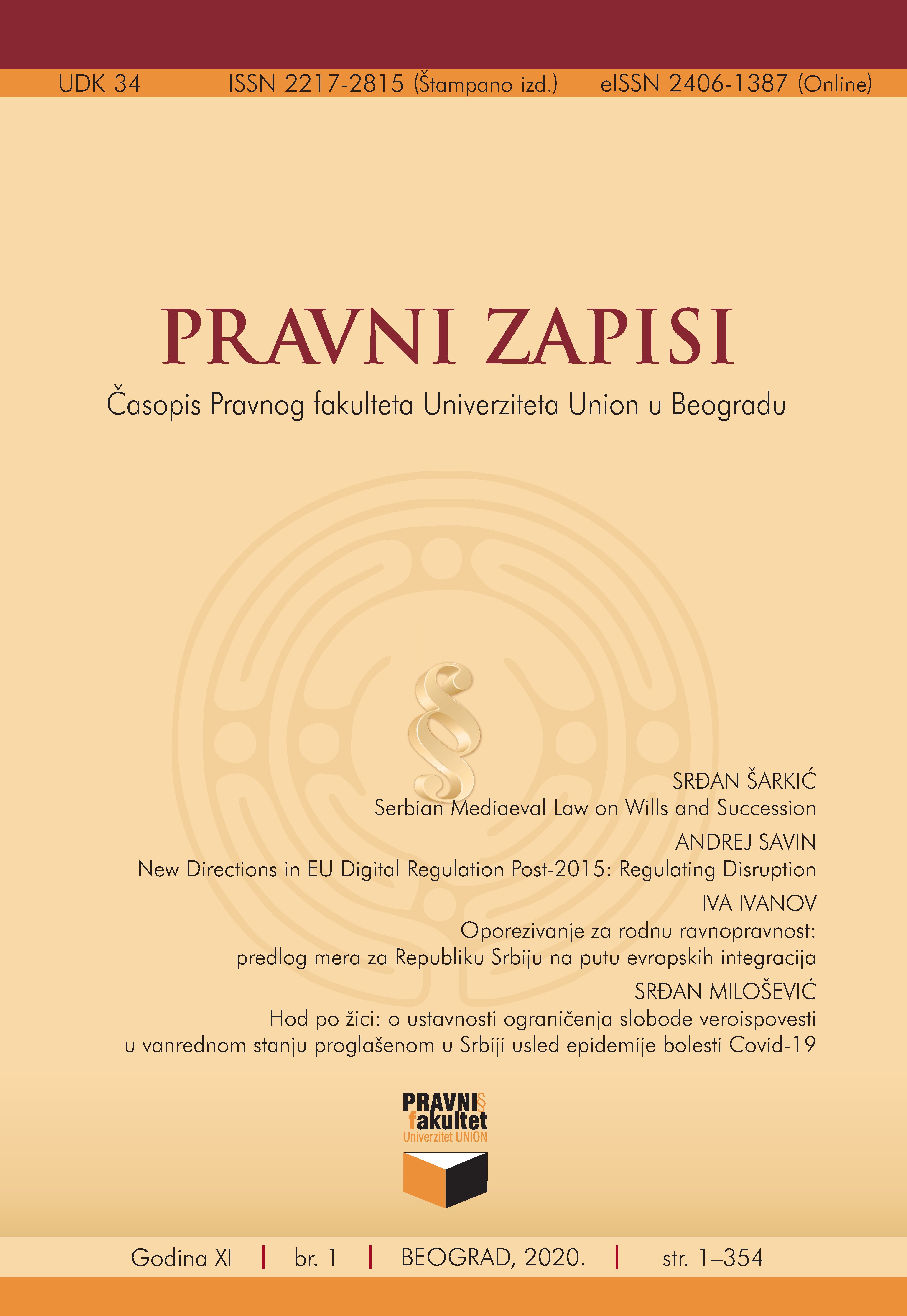
Keywords: interpretation; contract; general conditions; ambiguous provisions; contra proferentem; contra stipulatorem
Having the rules of contract interpretation as a starting point, in this article the author considers two indisputable conditions for the application of the contra proferentem rule: (1) ambiguity of the provision, as an issue separate from the fact that the provision has become disputable among the contractors; and (2) the fact that the contract was unilaterally proposed or independently drafted by one contracting party. The article then focuses on the following contentious issues: (a) whether the contra proferentem rule is necessarily related to the protection of the weaker party or it is applicable regardless of the power disproportion between the contracting parties; (b) whether conducting negotiations and the existence of a reasonable possibility for the other party to become acquainted with the general conditions before the contract conclusion preclude the application of this rule; (c) whether the contra proferentem rule should be applied restrictively or extensively and without special conditions in contemporary law; and (d) whether this rule is a general and universal legal principle or applicable only when expressly provided by the relevant national legislation. If answers to these questions can be graded, then they could be taken into account proportionally when measuring the scope of application of the contra proferentem rule. In that situation, it could be asserted that the greater the scope, intensity, and effectiveness of the negotiations that preceded the contract conclusion, the less the justification forthe application of this rule of interpretation, and vice versa. On the other hand, starting from the inequality of the parties, it can be asserted that the greater the inequality between the parties in terms of bargaining power, experience, genuine inequality, etc., the greater the need to apply this principle. The author emphasizes that the contra proferentem rule is used for the interpretation of adhesion contracts. Therefore, its scope should be determined in each particular case, taking into account the actual influence of the other party on the choice of provisions governing the contractual relationship, and bearing in mind that between general conditions and adhesion contracts a sign of equality does not necessarily exist. Consequently, it seems that not only exclusive but also proportional application in determining this rule’s scope in a specific situation is possible. The author also points out that the scope of its application may depend on the determination of the goal and value one protects, whereby the determination to protect the weaker party or to protect the conscientious and moral conduct of the party and the prohibition of abuse, can lead to different results. Accordingly, the author argues that although the contra proferentem rule is necessary to prevent potential abuses of the contracting party that independently creates the general conditions of the contract, this rule should not be abused by the other contracting party either. More precisely, it should not be used as an instrument in situations when, during the contract implementation phase, it becomes evident that the fulfillment of the other party’s contract obligation has subsequently become difficult or costly. Respecting the postvention and preventative role it has, the contra proferentem rule is one of the subsidiary and special rules of interpretation. The rule is to be applied in compliance with general and other special rules of interpretation, primarily seeking the common intention of the parties. The application of the contra proferentem is conditioned and limited, and justified only when it is founded and appropriate. The extent of its scope in practice should depend on the circumstances of each particular case, while at the same time taking into account the basic principles of the contract law.
More...
Review of: Muslimani Jugoslavije nakon Velikog rata: odjeci Mirovnog ugovora iz Saint- Germaina 1919. Institut za islamsku tradiciju Bošnjaka, Sarajevo 2020., str 361.
More...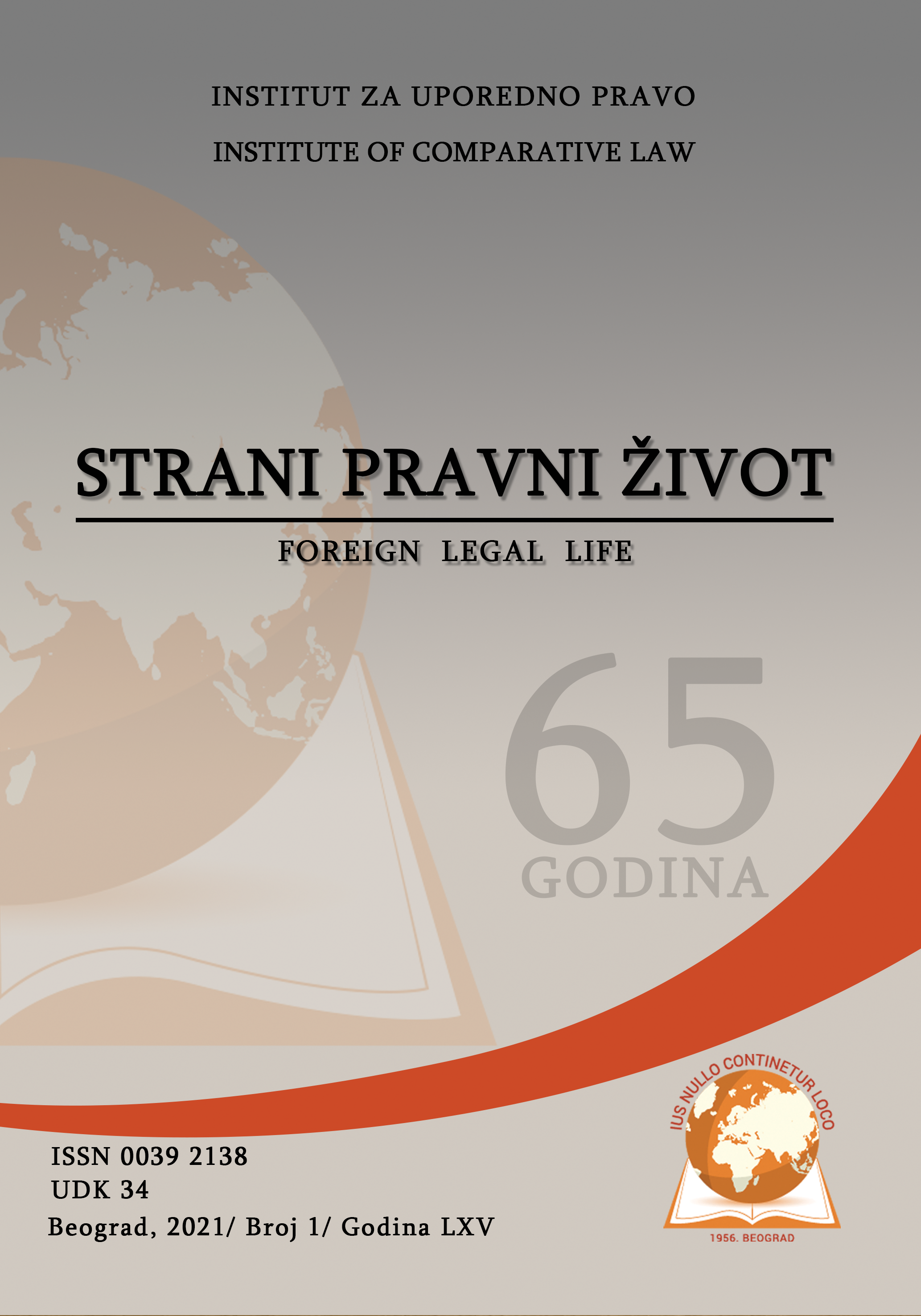
Keywords: collective agreement; extended effect; systems of extension; International Labour Organization;
Collective bargaining is a process of joint decision-making in which the social partners, representing the interests of their membership, try, in good faith, to determine the content and conclude the collective agreement. In this sense, collective bargaining is a way to resolve many issues related to the work process, to the satisfaction of all parties.In a context in which labour markets are characterized by inequality and uncertainty, the extension of the collective agreement is a key public policy instrument for the promotion of collective bargaining in general. However, certain principles must be represented to allow as many workers as possible to be covered by the extended effect of the collective agreement. These principles are set out in Collective Agreements Recommendation no. 91 of International Labour Organization and need to be followed to ensure respect for the free and voluntary nature of collective bargaining.With the fourth industrial revolution, the world of work changed radically, but the institute of the extended effect of the collective agreement can offer some answers to new circumstances, such as the increase of flexible forms of work and employment, migrant workers, or posted workers.
More...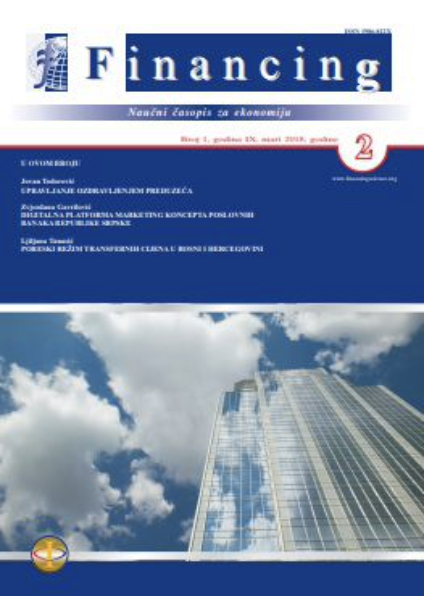
Keywords: travel certificate; contract for travel; minimum number of travelers; lump-sum price; Law on Consumer Protection; Law on Contractual Relations;
A travel certificate with a contract for travel is, on the one hand, intended to serve as proof that the contract for travel has been concluded, and on the other hand, as a document where the traveler learns his/her rights, obligations and responsibilities, thus being provided with an adequate protection. Moreover, the travel certificate indicates the minimum number of travelers which must be gathered before the start of the travel, which plays a key role in determination of the total (lump sum) price of the travel, it being the basis for its formation. Prior to the enactment of the Law on Consumer Protection, a contract for travel was a contract which required no special form, whereby the travel certificate actually served its intended purpose. However, with the entry into force of the said law, the principle of informality has been deviated from, and special formal requirements for the conclusion of a contract have been prescribed, which made the travel certificate a superfluous institute. However, despite this, the issuance of a travel certificate, which is exclusively provided by the Law on Contractual Relations, still exists not only as an outdated and obsolete institution, but also as an requirement of the travel organizers, the fulfillment of which may question the legal validity and legal effect of the contract for travel.
More...
Keywords: WWI; Yugoslavia; muslims; Peace agreements; 1919;
Review of: Hikmet Karčić (ur.), Muslimani Jugoslavije nakon Velikog rata: odjeci Mirovnog ugovora iz Saint-Germaina 1919, Zbornik radova, Sarajevo: Institut za islamsku tradiciju Bošnjaka, 2020, 361 str.
More...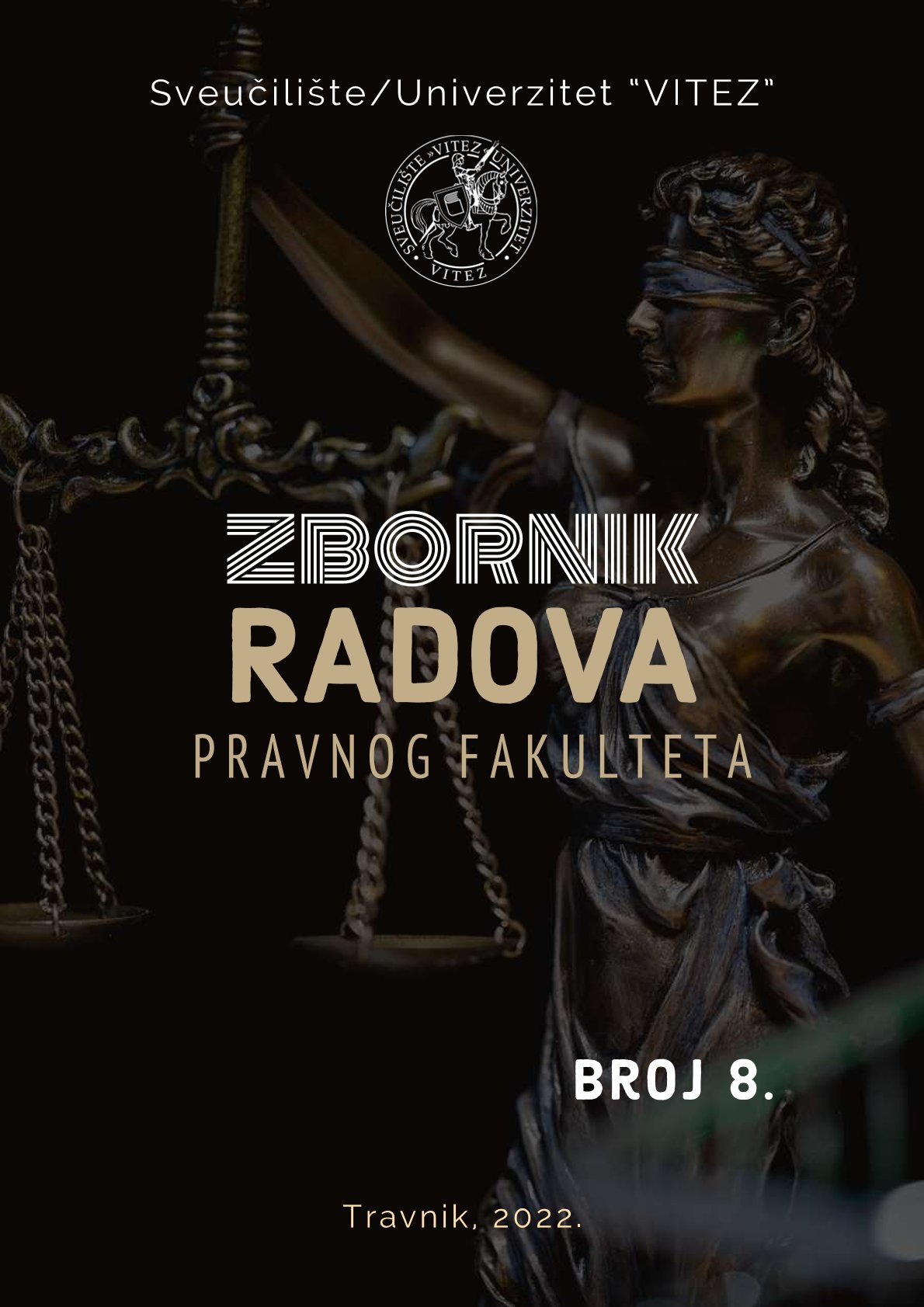
Keywords: consumer; protection; credit; payment; banks;
Financial, information and legal inferiority of consumers is the most evident in the contracting and repayment of consumer loans which are existential basis of many consumers in Bosnia and Herzegovina and the rest of the world. Consumer, in the state of financial difficulties caused by the sudden unemployment or similar event, finds himself in a financially difficult position which ''forces'' him to borrow, producing additional costs such as bank fees and interests. With this in mind, it is clear that the protection of consumers is necessary when consumers appear as users of financial services, through the special consumer rights regarding the consumer loans: the right to terminate the contract concluded for indefinite period, the right of withdrawal from the contract and the right to early repayment. The establishment and utilization of the right of withdrawal from the consumer credit will be the focus of this paper.
More...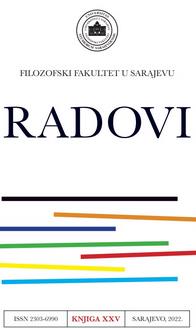
Keywords: psychological contract; academic staff; psychological contract breach; emotional reaction to a psychological contract breach; interpretive process;
The psychological contract is a perceived agreement on mutual obligations and resource exchange, which in the academic work context will first be recognized in the relationship between teaching staff and higher education organizations. This is an implicit contract formed based on given or just implied promises, which the parties in the relationship do not have to be fully aware of. However, such a contract will guide their mutual behaviour, and a number of individually and organizationally relevant outcomes will depend on its (un) fulfilment. Since the concept of a psychological contract is relatively new and unexplored in the Bosnian academic context, this paper sought to answer the question: Does the perception of a psychological contract breach lead to an emotional reaction to that breach, and under what conditions? Following the identified problem, the correlation between the perceived breach of the psychological contract and the emotional reaction to the breach, and the moderating influence of the interpretive process (defined through attribution of causes, perception of fairness and perception of organizational politics) on this relationship was examined. The results suggest that in a sample of Bosnian academic staff it is justified to say that the correlation between the perceived psychological contract breach and emotional response to that breach will be stronger if the staff members perceive interactional fairness in the organization to be high. The academic staff’s perception of the presence of political behaviour in the organization, as well as the way they attribute the causes of the psychological contract breach, probably does not have a significant impact on their interpretation of the psychological contract breach.
More...